Sister Đào Nghiêm recounts experiences of learning from Thich Nhat Hanh as a member of his monastic community.
In search of meaning in her life, Sister Đào Nghiêm chose at the age of 29, to join a spiritual yoga community. During those twenty-one years with that community, she trained hundreds of yoga teachers. After meeting Thich Nhat Hanh in early 2002, she decided to join the monastic community of Plum Village and was ordained a novice in 2003. She now lives in the Plum Village in Lower Hamlet
Excerpts are from an interview published in the magazine “Sources” n°50- December 2020- Interview by Nathalie Calmé.

Can you tell us how you encountered the teaching of Zen master Thich Nhat Hanh?
One day a friend lent me a cassette of a guided meditation by Thay in which he said, “Smile during meditation”. I had never heard that before! So I practiced smiling during meditation. This simple smile on my lips brought relaxation to my body and in my mind. I started to read books by Thay, notably “Old Paths, White Clouds”, where he recounts the life of the Buddha and reveals the face of the wise man in all his humanity. In 2001, I listened to the speech Thay gave after the September 11 attacks. I liked his way of writing and expressing himself with simple yet profound words.
The first time I met Thay was in January 2002, at Plum Village. I had come to spend a week there, especially to meet him. I was deeply touched by his presence, his inner silence, his openness, his listening. At the beginning of that year, my aunt was in a coma, and she died during my stay in France. The way Thay talked about death resonated deeply with me.
How did Thich Nhat Hanh’s teachings help you through the grieving process?

Thay used simple, very human images and words to talk about death. During an exchange, he invited me to open up and drop the armour I had put on to protect myself. He made me understand what feeds our emotions of sadness or anger which allowed me to ask myself good questions, such as, “What did I receive from the transmission of my ancestors? What do I really want? What energy do I want to give to the world?”
How has meeting Thich Nhat Hanh changed your life?
I became a nun at the age of fifty. This is a big change! At that time I was married, my daughter was nineteen, I was living in another spiritual community. My meeting with Thay was a new birth. To live in a monastic sangha is a bit like being a child again, we have to learn everything again. I learned to open my heart more to life.
What was the master/disciple relationship with Thich Nhat Hanh like? Did you have one-on-one encounters with your master?
The relationship with Thay was one of everyday life. We would walk with him, share a meal or a cup of tea. During these informal moments, we could ask him questions, but we didn’t have formal interviews. If we wanted to meet him we could come to him directly or ask for an interview. Thay observed us, watched how we moved around, how we acted towards each other…. He had a lot of patience with his students. He guided us with a lot of understanding, compassion and love.
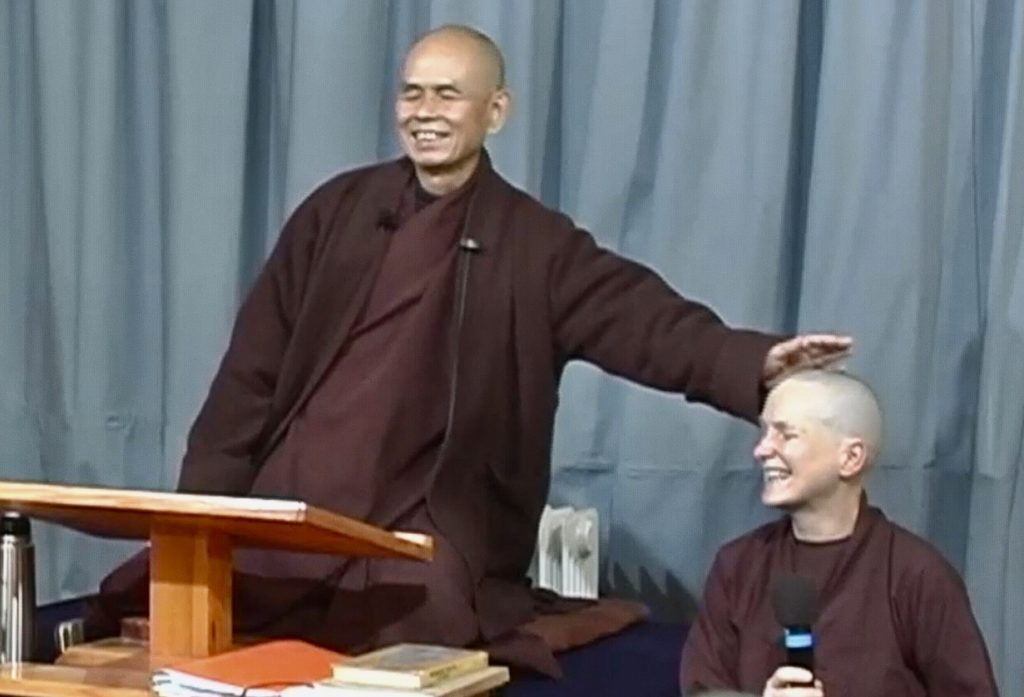
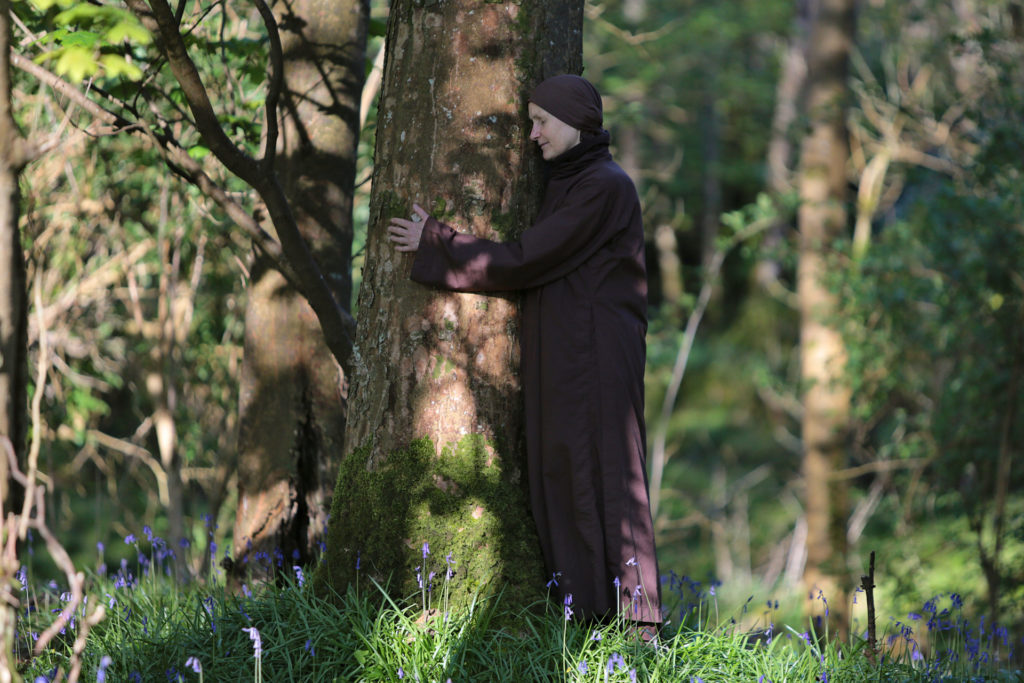
Sr Dáo Nghiém,a Buddhist Monk, from Plum Village, France, meditating in Killarney National Park, County Kerry, on a retreat led by Zen Master Thich Nhat Hanh,entitled “Living Mindfully Today” took place in Killarney Convention Centre, accompanied by 50 monks and nuns, over 750 lay people attended.Photo:Valerie O’Sullivan/no Reproduction/issued 15/04/2012 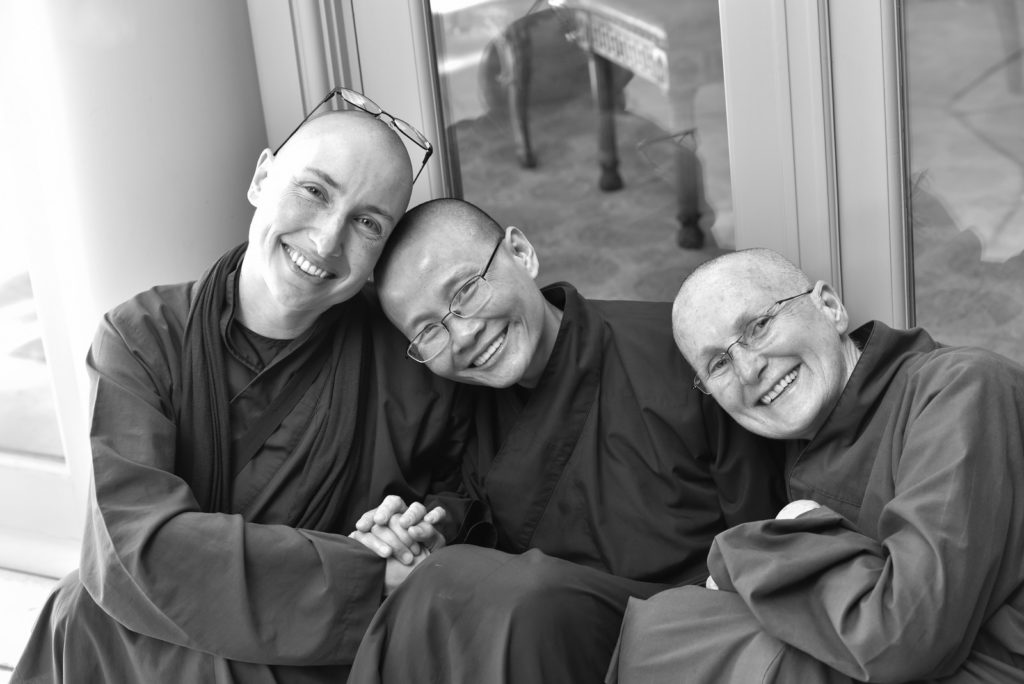
How does Thay make you aware of an aspect of your personality that needed to be transformed or an attitude that needed to be improved?
In the letters we wrote to Thay, we asked him questions and could also express our difficulties and differences of opinions and ideas. Thay answered us directly, in writing or during his teachings.
Thay wants us to be free to be who we are. He didn’t impose a model on us and didn’t want us to become his replica. For him, it is essential that each of us discovers and blossoms with our own creativity, while at the same time making sure we stay on the path.
Do you have any memories with Thay to share with us ?
When my sister died, Thay was very present for me, as he was with all the brothers and sisters when they were going through hardships. When I came back from the funeral, Thay took me to the garden to walk. Then, when we returned to the room where Thay was writing his calligraphy, he asked me, “What could we put as a calligraphy to welcome the participants of the Francophone retreat?” (It was a few days before the retreat). With this question, he invited me to return to the present moment, while allowing me to embrace my grief.
One day when we were in Vermont, it started to snow and we went for a walk in the woods with Thay. It was magical. He glided gently over the snow and lay down with both arms wide open in the fresh snow, showing his childlike joy. We all laughed and did the same thing. I have so many memories of moments when Thay brought me back to the present moment, to the beauty of Mother Earth, simply by a gesture.
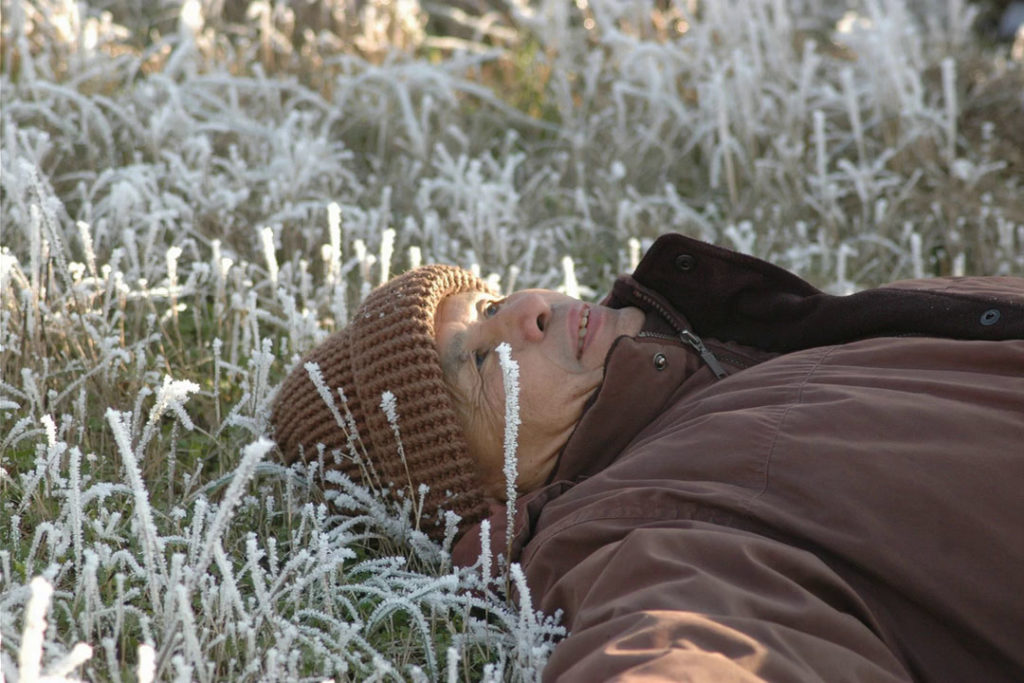
Some time after his stroke, in 2014, Thich Nhat Han chose to reside in Vietnam, in the temple where he had lived as a young novice. How do you now relate to your teacher?
We are not separated from Thay. He is always present. We feel his presence in everyday acts. For example, when we drink tea or a glass of water in mindfulness. To drink in mindfulness is to touch life, to take the time to appreciate life. This morning, it was still dark and I went to admire the clouds playing, the day slowly coming and penetrating the night, the colour of the sky changing, it’s beautiful! It is thanks to Thay that I can stop and contemplate the sky. Before, I was too busy, I was missing out on my life.
The walking meditation taught by Thay also touched me a lot. I have walked very often behind or next to him, in nature and in big cities. This practice has helped me to transform emotions, suffering, and brought joy and stability. Today, when I walk in mindfulness, I can feel his presence.
I also like to remember the strength and courage with which Thay went through so many hardships. And still does! Thay can no longer speak, but he makes himself understood through gestures and looks. I went to see him in January in Vietnam. When I walked behind his wheelchair, I could feel Thay walking with my feet. He really taught me how to take steps on the earth in mindfulness. I was pushing Thay in the wheelchair but he was also in my feet. It was a wonderful experience.
What message would you like to convey to Thich Nhat Hanh?
I would like to express my deep gratitude and love to him. When we asked Thay what he wanted for his birthday, he said, “Give me the gift of your practice.” Before I left for France, I went to see him in his room. I sat down beside his bed and I told him, “I promise to continue to practice and pass on what you taught me.”
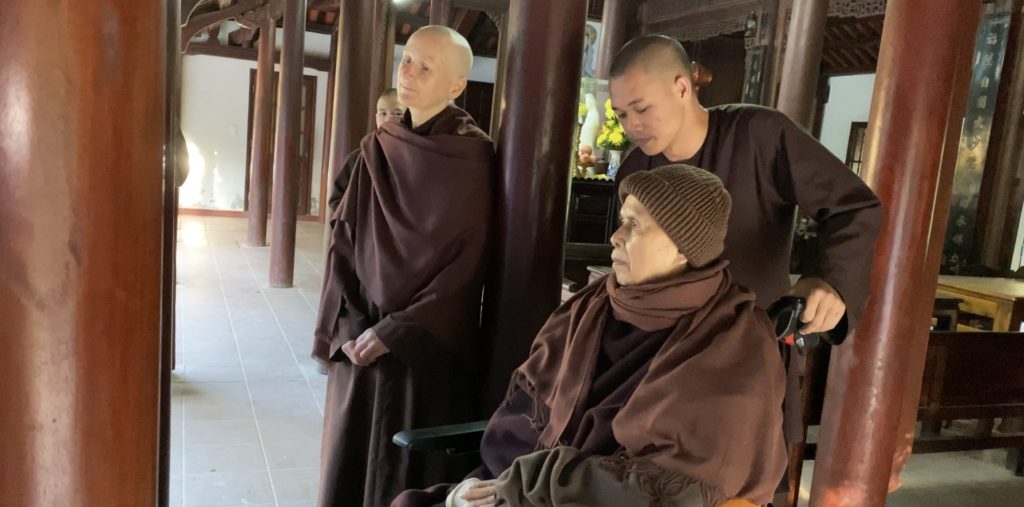


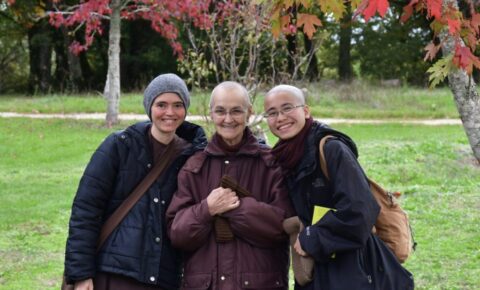

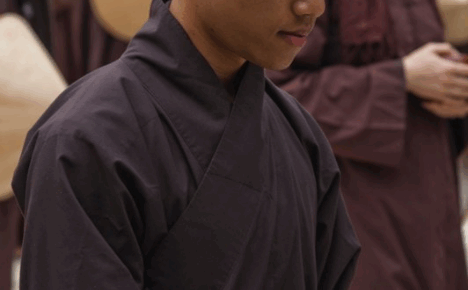
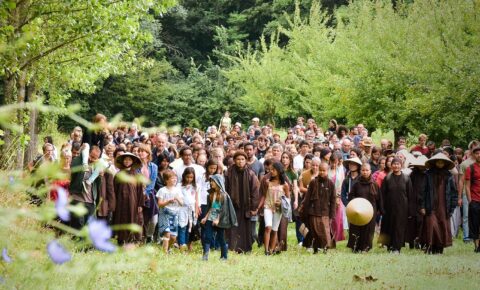
Share Your Reflections